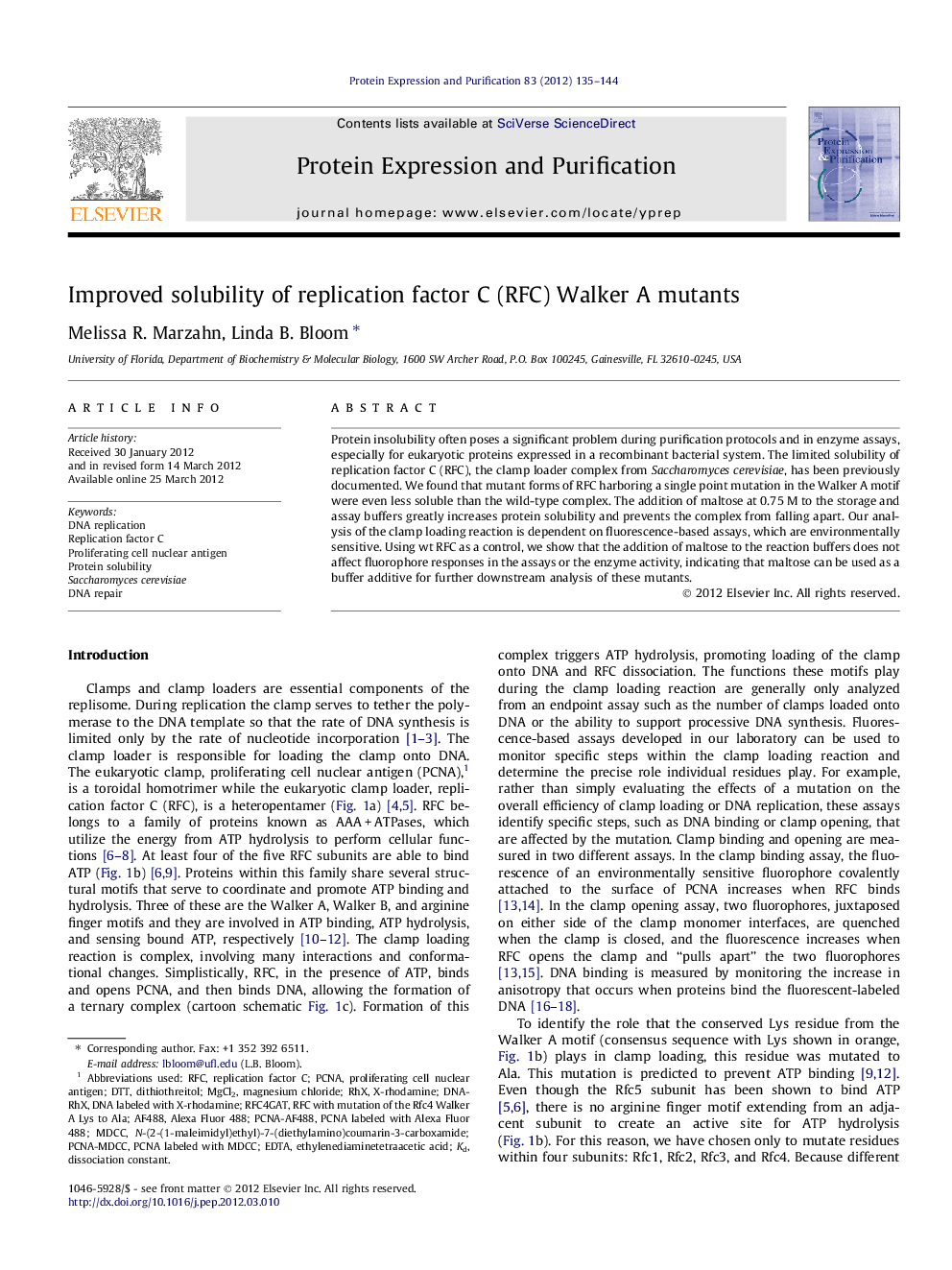| Article ID | Journal | Published Year | Pages | File Type |
|---|---|---|---|---|
| 2020649 | Protein Expression and Purification | 2012 | 10 Pages |
Protein insolubility often poses a significant problem during purification protocols and in enzyme assays, especially for eukaryotic proteins expressed in a recombinant bacterial system. The limited solubility of replication factor C (RFC), the clamp loader complex from Saccharomyces cerevisiae, has been previously documented. We found that mutant forms of RFC harboring a single point mutation in the Walker A motif were even less soluble than the wild-type complex. The addition of maltose at 0.75 M to the storage and assay buffers greatly increases protein solubility and prevents the complex from falling apart. Our analysis of the clamp loading reaction is dependent on fluorescence-based assays, which are environmentally sensitive. Using wt RFC as a control, we show that the addition of maltose to the reaction buffers does not affect fluorophore responses in the assays or the enzyme activity, indicating that maltose can be used as a buffer additive for further downstream analysis of these mutants.
► Addition of maltose to buffers increases the solubility of RFC complexes. ► Maltose does not affect ATP-dependent PCNA binding, opening, or DNA binding by RFC. ► Maltose disrupts weak ATP-independent interactions between RFC and PCNA. ► PCNA opening, an intramolecular reaction, is two times slower in maltose. ► Maltose prevents protein precipitation and allows for analysis of mutant complexes.
